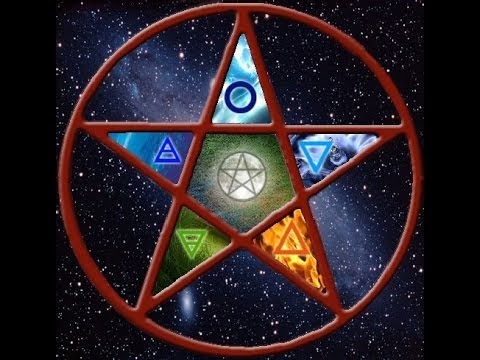
Many years ago when working as an advocate for newly released former offenders of soft crime I discovered that as part of their rights, when incarcerated, they were able to worship in the church of their choice. To my surprise, the State of Colorado acknowledges Wicca as a formal religious sect. The surprise comes from expecting the normal prejudice that follows anything that is not mainstream and therefore not usually understood or tolerated.
Wicca is often lumped into the categories of dark and satanic by people who know nothing about it. While in actuality, quite the opposite is at its roots. Light and Nature are the solar powers that fuel this magnificent expression of Spirituality. It is true that paganism is central to our practices, but paganism is derived from all things innate to human existence.
It would be more accurate to exchange the term paganism with Neopaganism. Neopaganism is a reconstruction of many different religious beliefs. Patterning beliefs from Celtic, Egyptian, Roman, Greek, Norse as well as other traditions, Wicca is the offspring of all of them.
The majority of non-Wicca people don’t even begin to tap their real power that lies dormant under layers of mediocrity. Within every religious tradition, there are levels that serve more deeply, however not all choose to delve into the more intense practices. Usually when someone is interested in Wicca they want to explore depths that are considered out of the norm.
In Wicca we believe that everything you do comes back to you three times. This is called the Threefold Law. So when we cast a spell to bring vibrant health, love into someone’s life or a bountiful harvest it is done in the Light of Good. Remember the first tenet of Wicca: “An It Harm None, Do As Thou Wilt”.
We don’t really worship God or Goddess, but rather have a partnership relationship with them. We need each other and both are honored to serve those needs. Wiccan holidays consist of Sabbats, or solar holidays and Esbats, lunar holidays. On our Wheel of the Year we celebrate eight holidays all together – some solemn and others festive. Starting with Yule then Ostara, Midsummer, Mabon, Imbolc, Beltane, Lughnasadhh and Samhain.
During these holidays we will perform rituals. These consist of, but are not limited to:
The casting of a circle or designating a sacred space
The invocation of a deity or deities
The body of the ritual which will include casting spells, working with magick, dancing, singing, readings, sharing a community meal – good Wiccan fellowship
Closing the circle and returning the space to an “ordinary” space once again.
Wicca and Christianity share a great deal in common, starting with respect for life and the Golden Rule of doing unto others. But Wicca is more open minded and less uptight about gender, for example. While many Christian religions are male oriented, Wicca is Goddess focused. While men play an important role, they are not superior to females. There is no concern about sexual orientation in Wicca. If you choose to be heterosexual or homosexual is of no concern to other Wiccan practitioners. Wicca embraces Nature in all ways and whenever possible we prefer to perform ritual in the openness of a natural surrounding.
This article may have answered some of your questions about Wicca and there are numerous resources to aid you in further discovery. I encourage you to learn more if you have any interest, but be discerning if you are not personally sponsored into a group. It’s wise to familiarize yourself with an individual over an afternoon tea at the local restaurant before submerging into a community you don’t know.
Do you have more questions? Leave them below with any comments and I will address them in a later post. So mote it be.